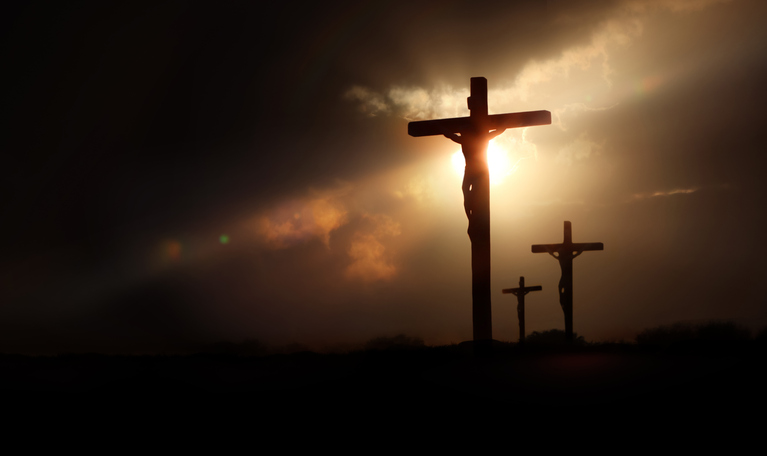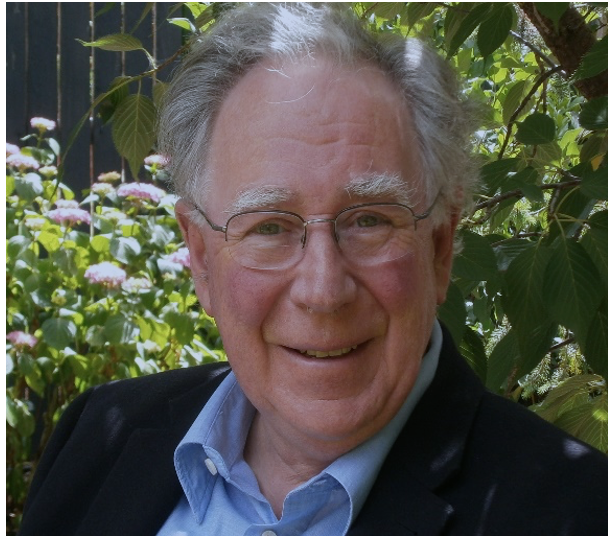Easter, triumph of life over death
April 16, 2025
On 11 April, P&I published a wonderful Geoff Pryor cartoon showing “first semester exam results” for a self-satisfied Donald Trump lying back comfortably in a lounge chair.
Two assistants are looking at the results which show that in history, economics, science and general knowledge, “D. Trump” had four “Fs”. One assistant asks the other: “Do you want to tell him ‘F’ doesn’t stand for ‘fantastic’?”
The cartoon isn’t just a commentary on Trump, whom even The Wall Street Journal accuses of “a complete disregard of history” (9 April). It also says something much broader about our culture. There is a feeling around that our culture is increasingly getting an “F”. People feel rootless, lacking a sense of context, and it’s not just the change in values from conservative to progressive; our symptoms indicate something more profound.
It’s significant that in the cartoon Trump’s first failure is in history. Trump often uses the word “historical” to describe his decisions. Ironically, in a way, he highlights a clue to our cultural malaise: we’ve largely lost our history.
Perhaps sociologist Emile Durkheim helps us understand what’s happened. He sees social reality divided into two realms: the profane and the sacred. The profane is about the drudge of ordinary life: getting up in the morning, doing the dishes, going to work.
The sacred is what transcends that, and here the word “transcend” is important. The sacred relates us to that which takes us to something beyond ourselves, ultimately to sense the transcendent. For Durkheim, that is the role of religion. He sees it as a commonly agreed set of beliefs and practices that we share in common, thus creating community.
In a sense, Trump highlights our historical amnesia, particularly of the religion that underpinned Western culture and community for almost two millennia: Christianity. Despite the efforts of many to create an alternative set of beliefs and practices, mostly based on individualism and economic neo-rationalism, our culture remains rootless.
In this context how do we make sense of Easter? For believers, Easter is about the death and resurrection of Christ. Of the two, death is the easier to grasp. It’s fundamental to life and, as we get older, we’re increasingly conscious of its proximity. And, in a world where so many people are deliberately or casually killed in Gaza, Myanmar, Ukraine, DR Congo and elsewhere, we are constantly reminded of the fargility of life.
Resurrection is much harder to comprehend. For me, it is summed up in a simple phrase from the requiem mass: “Lord, for your faithful people life is changed, not ended.” However, it’s easy to assert the continuity of life, but what is the nature of that change?
Christianity is absolutely certain that we don’t just become some sort of pure spirit after death through the survival of the soul. Plato’s soul/body, spiritual/material distinction has led our culture completely astray. Christian creeds all assert that we believe in “the resurrection of the body”.
Essentially, they are saying that as humans, we are irrevocably “flesh” to use the biblical word, even after death. Death is a change in our enfleshed existence, not a triumph of “spirit”. The theologian who has thought most about this in our time is Karl Rahner (1904-1984), who argues that in death one doesn’t leave the material world behind, but enters more deeply into it.
The point he makes is that Christianity fundamentally believes in the resurrection and fulfilment of the body, not the immortality of the soul which, in the end, is a Platonic philosophical invention. The tragedy is that so much popular Christianity is, as Friedrich Nietzsche says, “Platonism for the masses.”
Rahner doesn’t get caught up in the nature of bodily resurrection, because such discussions simply dilute the power of the symbolic point being made: matter matters, that our bodily existence is the essence of who and what we are and it is our permanent reality. Rahner simply says that death is the “self-realisation which embodies the result of what a person has made of themselves during life”, and pretty much leaves it at that.
If matter really matters, this has enormous implications not only for us, but for care of the world environment, the maintenance of biological diversity and questions around what we are doing to nature.
This realisation has now even reached the papacy. In the 2015 encyclical letter Laudato si’, Pope Francis says, “Nature cannot be regarded as something separate from ourselves, or as a mere setting in which we live. We are part of nature.” Francis radically re-situates and re-roots us in the natural material world. He is particularly critical of the loss of biodiversity: “Because of us, thousands of species will no longer give glory to God by their very existence, nor convey their message to us. We have no such right.”
Fundamentally, Easter is about the triumph of material life over death and disintegration. Teilhard de Chardin speaks of “the spiritual power of matter” and it is in, and through, our material existence in nature that we most truly experience God.


